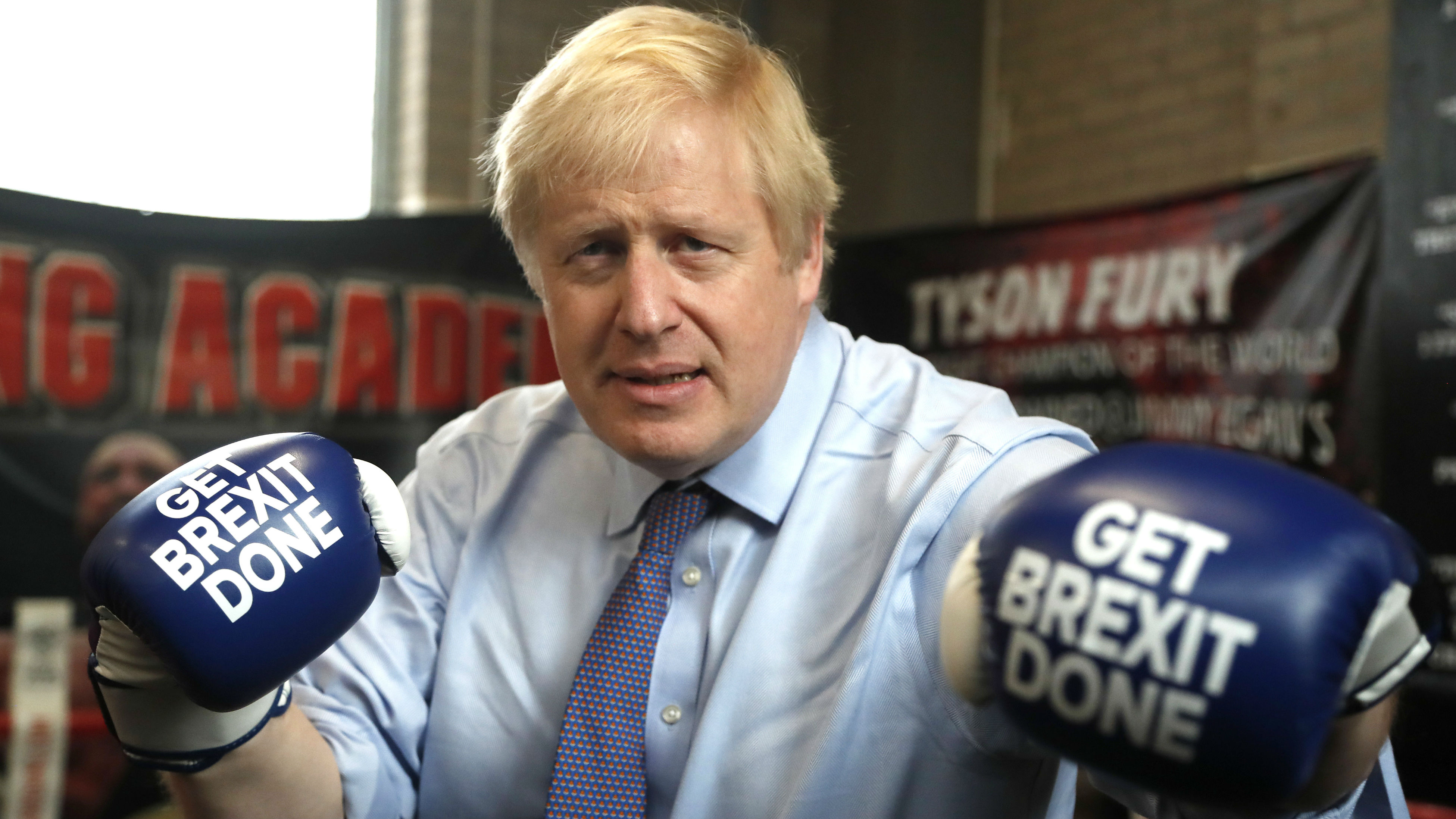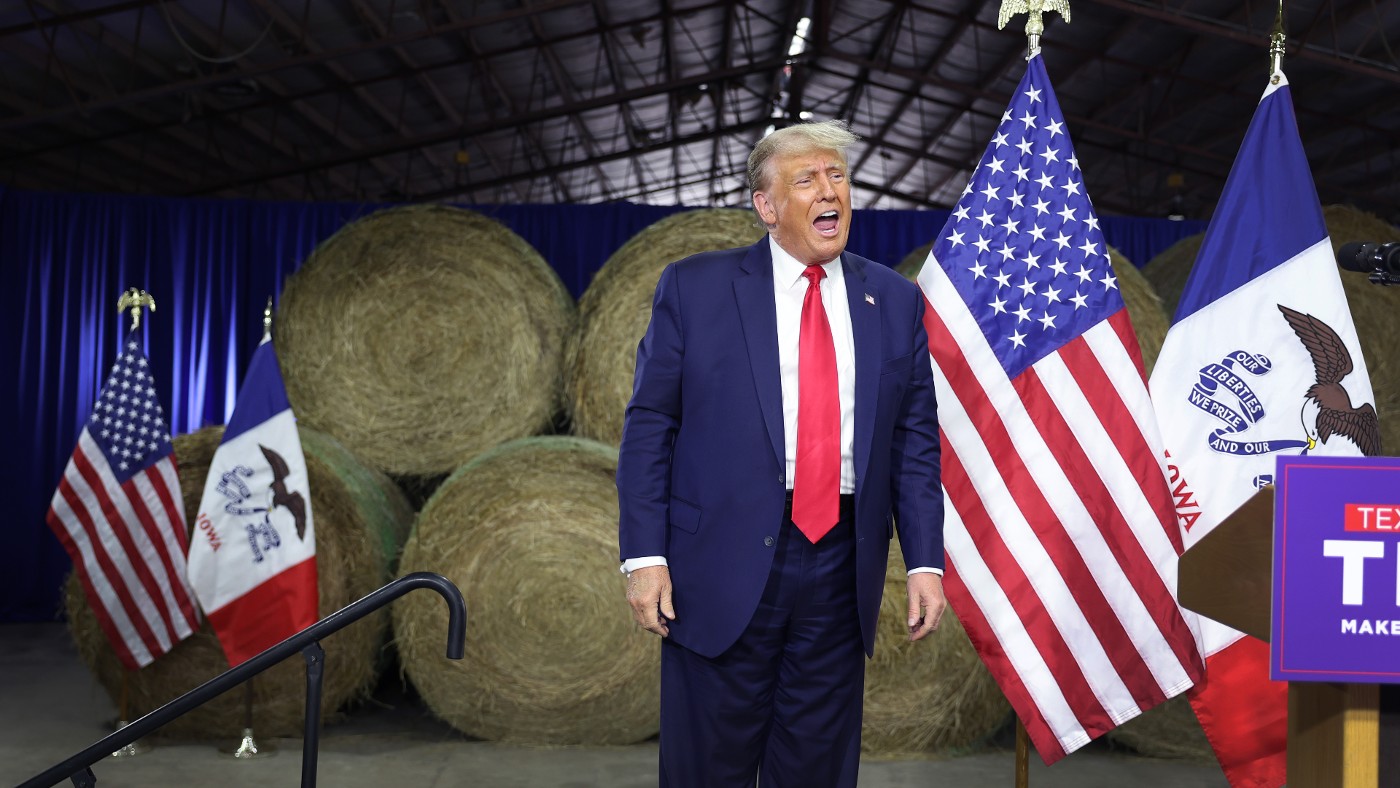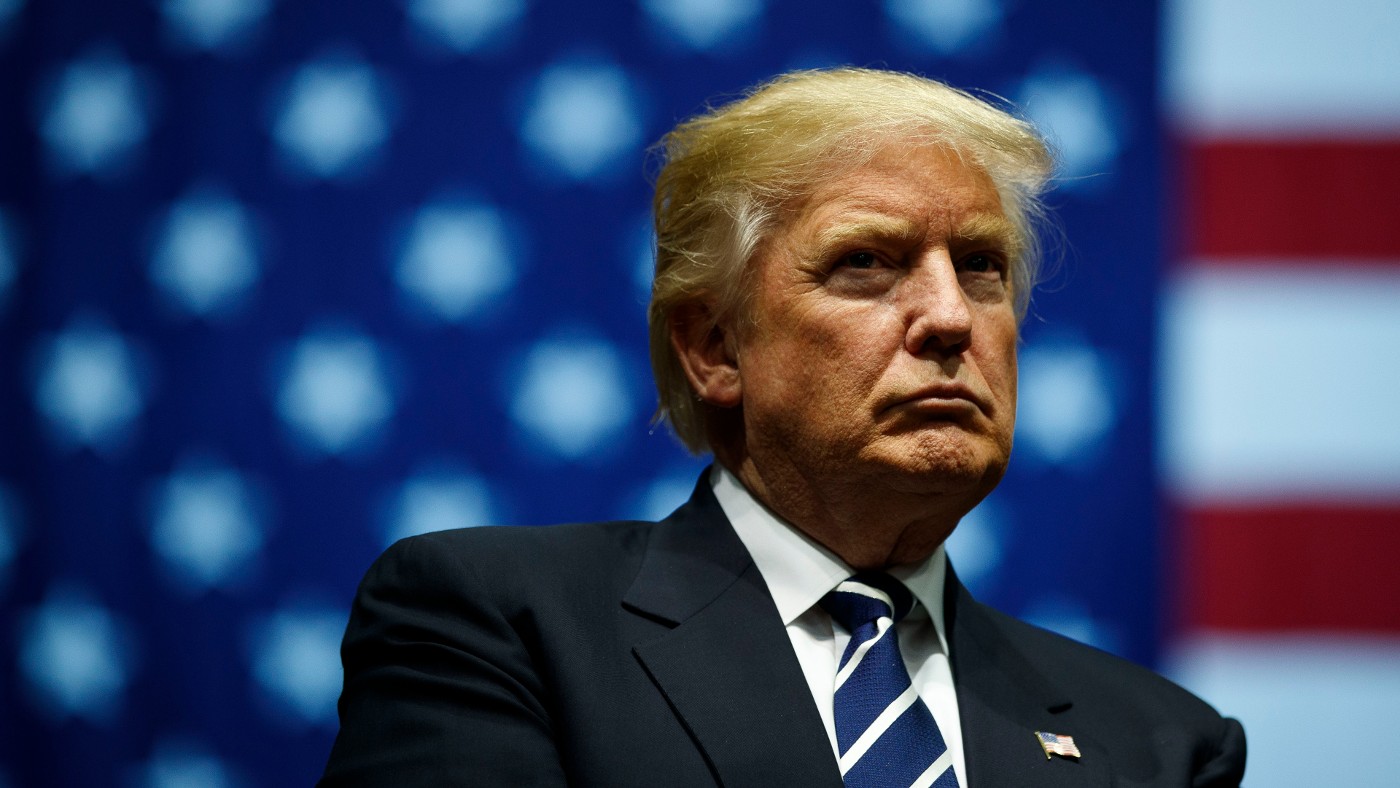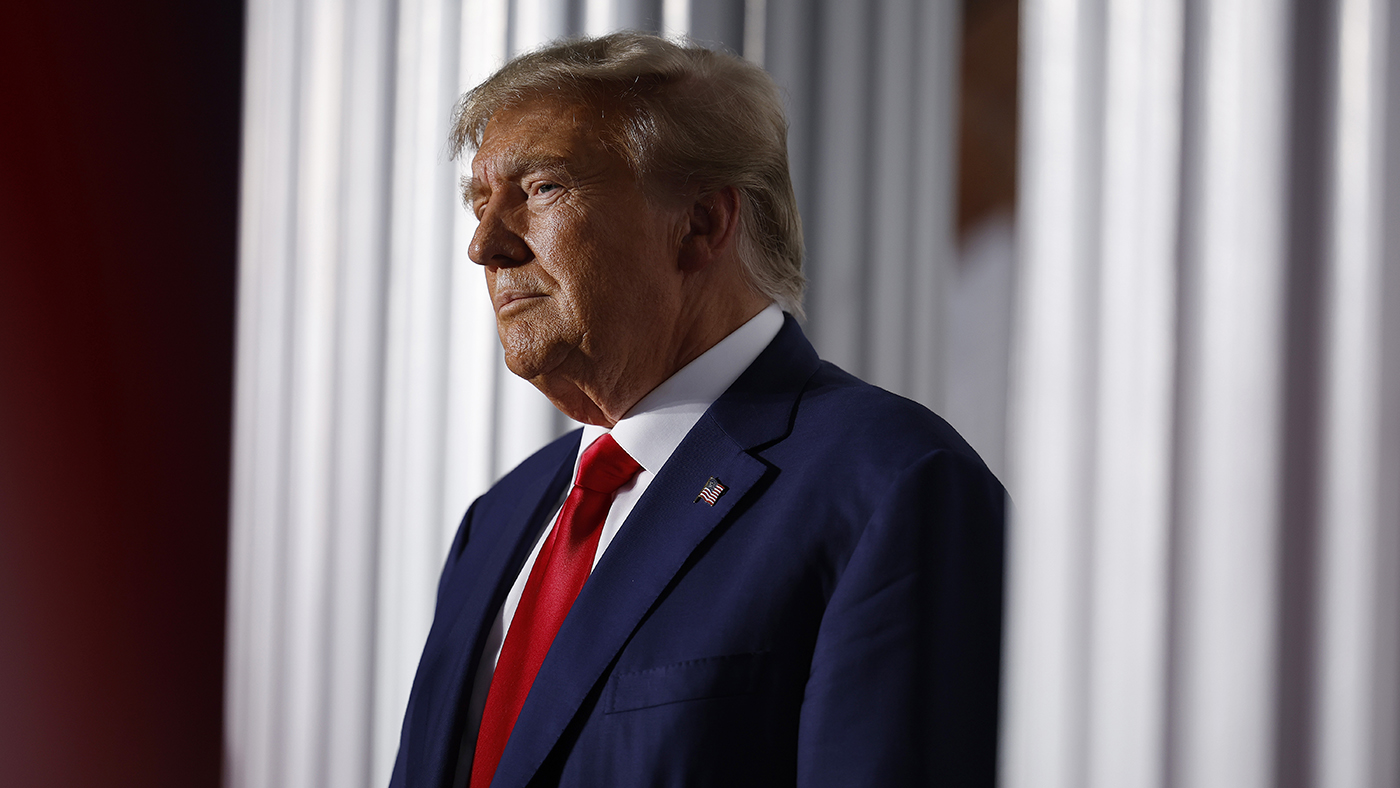Instant Opinion: ‘behind the scenes’ of Boris Johnson’s Brexit deadline
Your guide to the best columns and commentary on Monday 7 September

A free daily email with the biggest news stories of the day – and the best features from TheWeek.com
You are now subscribed
Your newsletter sign-up was successful
The Week’s daily round-up highlights the five best opinion pieces from across the British and international media, with excerpts from each.
1. Katy Ball in The Spectator
on the prime minister’s ultimatum
The Week
Escape your echo chamber. Get the facts behind the news, plus analysis from multiple perspectives.

Sign up for The Week's Free Newsletters
From our morning news briefing to a weekly Good News Newsletter, get the best of The Week delivered directly to your inbox.
From our morning news briefing to a weekly Good News Newsletter, get the best of The Week delivered directly to your inbox.
Boris Johnson’s Brexit deadline
“While some in government hope that Johnson’s intervention will serve to focus minds on the other side of the negotiating table, it’s another Brexit story that has led to the biggest reaction on the EU side. The Financial Times reports that sections of the Internal Market Bill, due to be published this week, are expected to ‘eliminate the legal force of parts of the withdrawal agreement’ in areas including Northern Ireland customs and state aid... So, what’s going on behind the scenes? There is much chatter about how this is all an attempt by No. 10 to suggest they are willing to walk away when really Johnson needs a deal. But in terms of suggestions of bluster, there is another factor to bear in mind. In Downing Street, there has long been a view that a deal needs to be in place by the autumn. This is not just because a hard deadline can focus minds. It’s because if you move past the autumn, most businesses will activate their no-deal contingency plans regardless of the prospects of a deal. If this happens, the incentive to agree a deal diminishes.”
2. Imogen West-Knights in The Guardian
on talk without action
A free daily email with the biggest news stories of the day – and the best features from TheWeek.com
Why do politicians keep telling us they're 'listening'?
“Why all this emphasis on listening? More often than not, it’s little more than an easy thing to say when you don’t want to alienate voters – or customers – by falling down hard on one side of an issue. Listening does form a central part of what MPs do locally in their constituencies through their regular surgeries, a term which makes the process sound about as appealing as getting your knee reset by Michael Fabricant. Talking about listening to an entire population, however, is all too often an empty platitude or performance. And no wonder politicians don’t want to actually listen to public grievances when so much of what they would hear is unfiltered rage. Boris Johnson’s ‘People’s PMQs’ stunt has seen him receive questions from the public such as ’When will you resign for your mishandling of the pandemic?” and the ever-popular ‘How do you sleep at night?’ Political listening is always, in the end, a selective process. Listening to whom? Whomever’s opinion already aligns best with the party’s values?”
3. Derek Thompson in The Atlantic
on science disagreeing with the White House
What Young, Healthy People Have to Fear From COVID-19
“A new philosophy of COVID-19 is circulating through the Republican Party and conservative media. If you look closely, you might notice that it resembles an early philosophy of COVID-19 that circulated through the Republican Party and conservative media: If young people get this disease, it won’t be so bad—and it might even be good... Many young people navigating this pandemic are asking themselves a two-part health question: What are the odds that I get infected? And if I do get infected, is that really a big deal? Much of my reporting has focused on the first question. To summarize that work in a sentence: People are at highest risk of infection in communities with a sizable outbreak, when they spend long amounts of time in closed, unventilated spaces where other people close by are talking or otherwise emitting virus-laden globs of spit, and everything is worse when people aren’t wearing masks. This advice is easy to give, because the best practices hold across the board, for everybody. ‘What’s the big deal?’ is a harder question, because the person-to-person outcomes of this disease are so maddeningly variable. The most universal answer must begin with the observation that death is not a synonym for risk.”
4. Clare Foges in The Times
on workers refusing to commute
Nothing will tempt us all back to the office
“What we might call the ‘Pret economy’ is on the floor. It has long been the case that in our nation’s capital you were never more than ten metres from an avocado and crayfish salad; now the sandwich giant is to axe a third of its workforce. Politicians are worried that Marie Celeste-like city centres will fail to pull in much foreign investment. The spectre of offshoring looms over all, too. If your workers are doing their jobs remotely, why not just employ some bright young things in India or Malaysia at a fraction of the price? All good reasons for the government to urge people back to their desks. Yet I am sure they are on a hiding to nothing. Though some may be keen to get back into the office (as a twentysomething in a poky flat-share, I would have been), my feeling is that most people have no intention of going back to normal. In recent months I have spoken to many whose long-term future is one or two days in the office a week, with the blessing of employers who will save a bundle on bricks and mortar. One friend declares that if her company demands she turns up full-time, she will jump ship for a work-from-home employer, a benefit that many will now offer.”
5. Tim Stanley in The Daily Telegraph
on the president’s controversial comments
Donald Trump may say stupid things, but it is more than clear that he respects soldiers
“To be clear: Donald Trump is an inelegant narcissist who cannot separate the personal from the office and play the part of president. We have always known that. A classic example of his tastelessness: he once described his efforts to avoid catching venereal disease as his ‘personal Vietnam’. But Vietnam was a dumb war. The First World War was ridiculous; Afghanistan was absurd... What would a soldier really want? A president who thinks and says what custom dictates, and then sends kids off to die in a desert? Or a president who has all the tact of a dyspeptic baboon but keeps his troops safe? The wet hair story, by the way, is contradicted by the memoirs of John Bolton, former national security adviser to Trump. The weather was judged too bad to fly to the cemetery, he says, and driving would have taken too long. In another section of the book, Bolton recalls that when the Iranians shot down an unmanned US drone, a plan was put to Trump to launch a military strike on Iranian bases. Trump vetoed it because ‘they didn’t kill any of our people’. Why, the president implied, should he kill a few dozen of theirs?”
-
 What is the endgame in the DHS shutdown?
What is the endgame in the DHS shutdown?Today’s Big Question Democrats want to rein in ICE’s immigration crackdown
-
 ‘Poor time management isn’t just an inconvenience’
‘Poor time management isn’t just an inconvenience’Instant Opinion Opinion, comment and editorials of the day
-
 Bad Bunny’s Super Bowl: A win for unity
Bad Bunny’s Super Bowl: A win for unityFeature The global superstar's halftime show was a celebration for everyone to enjoy
-
 Flies attack Donald Trump
Flies attack Donald TrumpTall Tales And other stories from the stranger side of life
-
 ‘Irony’ as Zoom calls staff back to office
‘Irony’ as Zoom calls staff back to officefeature And other stories from the stranger side of life
-
 Donald Trump criminal charges for 6 January could strain 2024 candidacy
Donald Trump criminal charges for 6 January could strain 2024 candidacySpeed Read Former president’s ‘pettifoggery’ won’t work well at trial, said analyst
-
 ‘Islas Malvinas’ and the new battle over the Falklands
‘Islas Malvinas’ and the new battle over the FalklandsTalking Point Argentina scores ‘major diplomatic win’ as EU refers to British territory by its disputed name
-
 The U.S. veterinarian shortage crisis
The U.S. veterinarian shortage crisisSpeed Read With an anticipated shortage of 15,000 vets by 2030, it will be harder to get care for pets
-
 Dutch king apologizes for country's role in slave trade
Dutch king apologizes for country's role in slave tradeSpeed Read
-
 Donald Trump in the dock: a fraught moment for US democracy
Donald Trump in the dock: a fraught moment for US democracyTalking Point There is speculation that former president could end up running his 2024 election campaign from behind bars
-
 Boris Johnson shocks UK by resigning from Parliament
Boris Johnson shocks UK by resigning from ParliamentSpeed Read